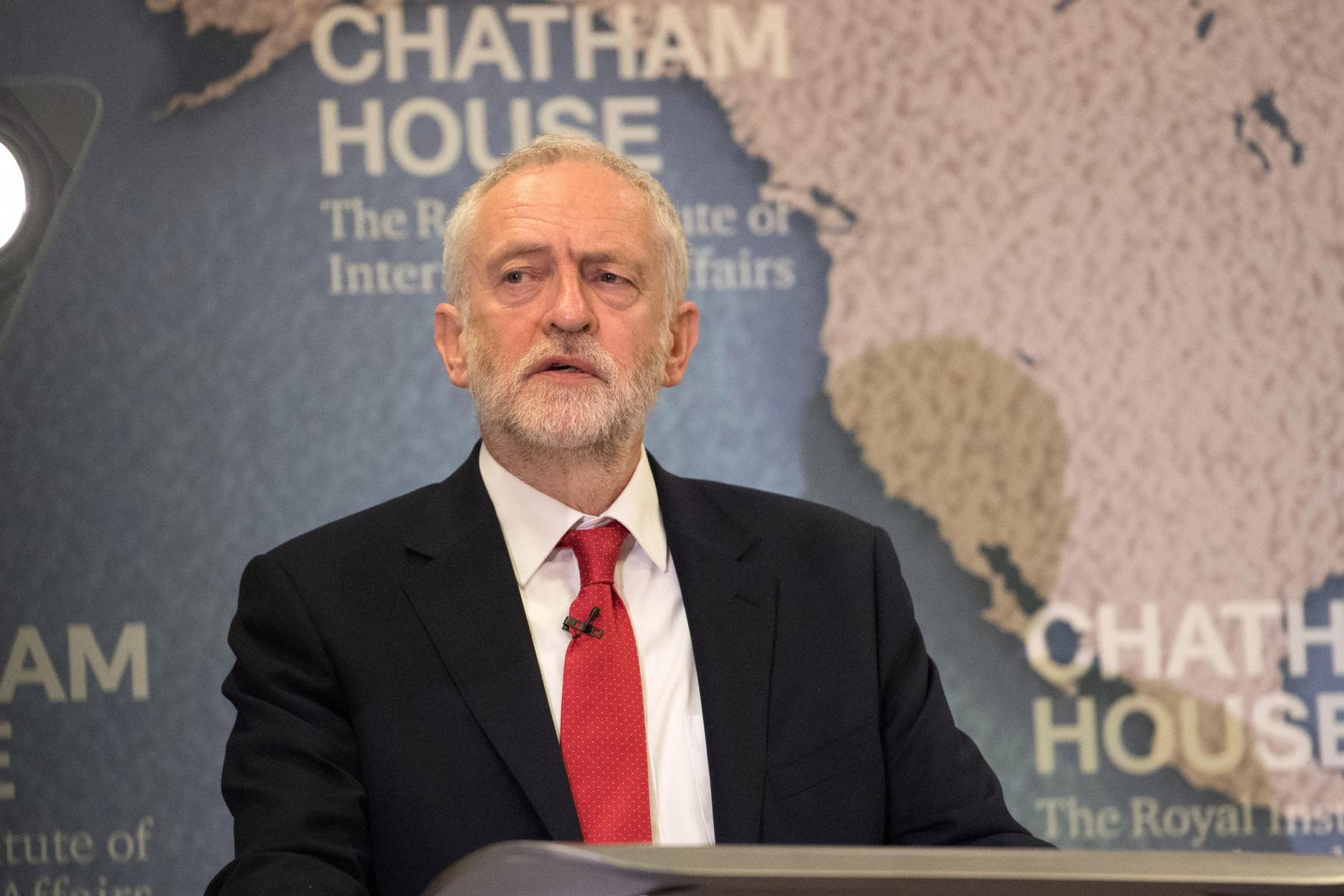Jeremy Corbyn: Britain has not fought just war since 1945
"The fact is that the ‘war on terror’ which has driven these interventions has failed," Mr Corbyn says

Your support helps us to tell the story
From reproductive rights to climate change to Big Tech, The Independent is on the ground when the story is developing. Whether it's investigating the financials of Elon Musk's pro-Trump PAC or producing our latest documentary, 'The A Word', which shines a light on the American women fighting for reproductive rights, we know how important it is to parse out the facts from the messaging.
At such a critical moment in US history, we need reporters on the ground. Your donation allows us to keep sending journalists to speak to both sides of the story.
The Independent is trusted by Americans across the entire political spectrum. And unlike many other quality news outlets, we choose not to lock Americans out of our reporting and analysis with paywalls. We believe quality journalism should be available to everyone, paid for by those who can afford it.
Your support makes all the difference.Britain has not fought in a just conflict since the Second World War, Jeremy Corbyn has said.
During a speech at Chatham House in London, the Labour leader was asked about British deployment of troops to areas of conflict since the end of the Second World War.
He mentioned operations in East Timor and Cyprus, but pointedly omitted a number of key British military campaigns post - 1945, such as Suez in 1956, The Troubles in Northern Ireland (1969-2002), the Falklands war in 1982 and more recently, the international campaign against Isis.
He added that the world is “more unstable than even at the height of the Cold War. The approach to international security we have been using since the 1990s has simply not worked”.
He said: “Yes there are deployments – largely through the United Nations – that I think are the right thing to do.
“I mentioned what went on in East Timor and the great help done in the peace keeping in Cyprus by the British forces."
Rob Gray, an army veteran, told The Daily Telegraph Mr Corbyn’s comments were an “insult” to friends who died in Northern Ireland, and accused him of caring more about “IRA [and] Hezbollah dead”.
The Labour leader questioned the legitimacy of the First World War, but acknowledged that the Second World War was just.
In addition Mr Corbyn, who is a member of the Campaign for Nuclear Disarmament, would not confirm that he would be prepared to use nuclear weapons in a conflict.
He said: “If circumstances arose where that was a real option, it would represent complete and cataclysmic failure. It would mean world leaders had already triggered a spiral of catastrophe for humankind."
Mr Corbyn heavily criticised the so-called "war on terror", saying the interventions upon which it was based had failed.
"They have not increased our security at home – just the opposite," he said.
Under a Labour government, he plans to create a “Minister for Peace”, who would work across the Ministry of Defence and the Foreign and Commonwealth Office.
He shied away from calling himself a "pacifist”, although he stated he would seek economic and diplomatic solutions to problems, with military action being the “genuine last resort”.
Speaking to Channel 4 News afterwards, he said he might not send military support to Nato countries under threat, and emphasised instead a “diplomatic” approach, which may include sanctions.
On the subject of Donald Trump, Mr Corbyn reiterated the strong relationship between the US and the UK, but insisted that “pandering to an erratic administration will not deliver stability”, and criticised the US president for “recklessly escalating confrontation with North Korea”.
Join our commenting forum
Join thought-provoking conversations, follow other Independent readers and see their replies
Comments